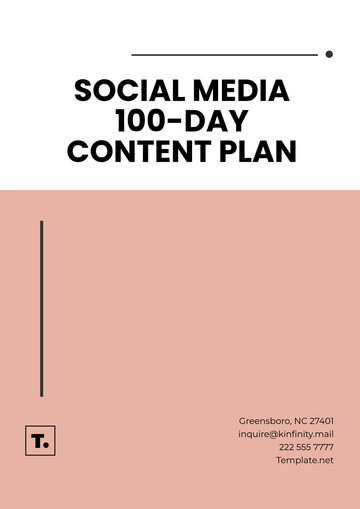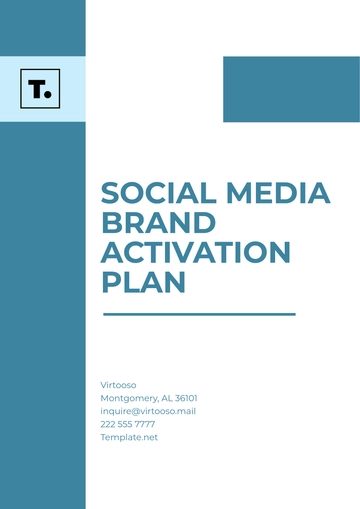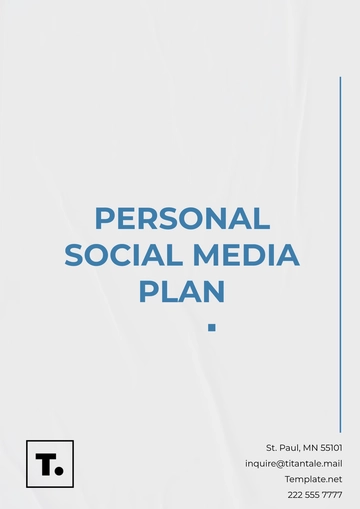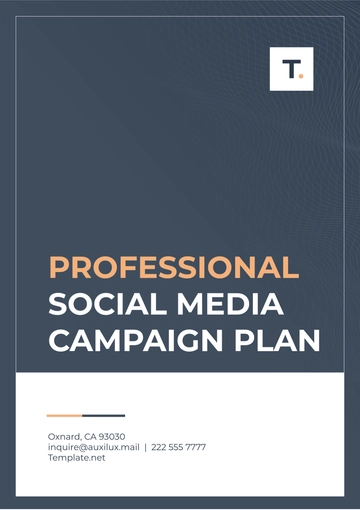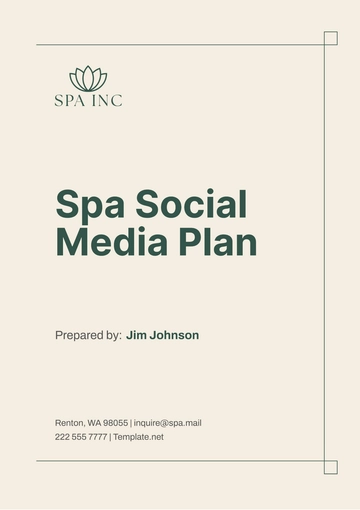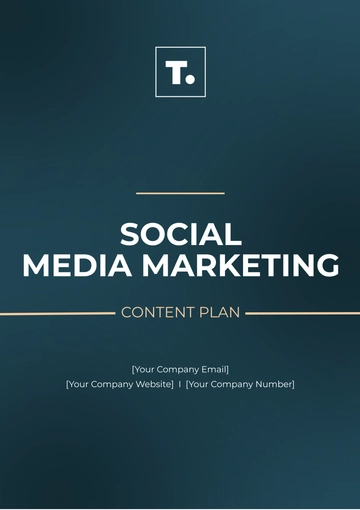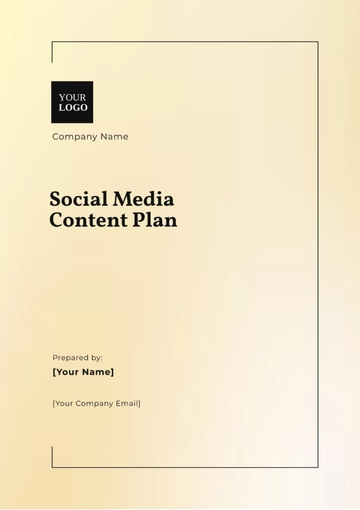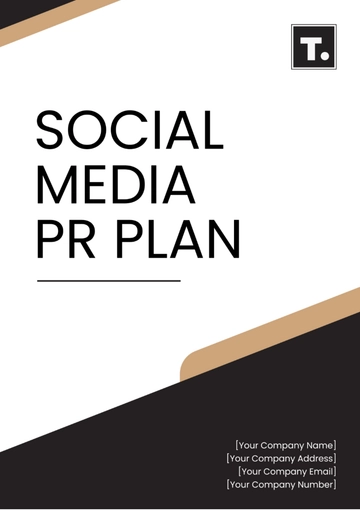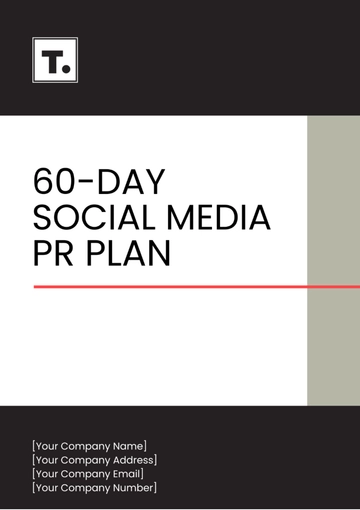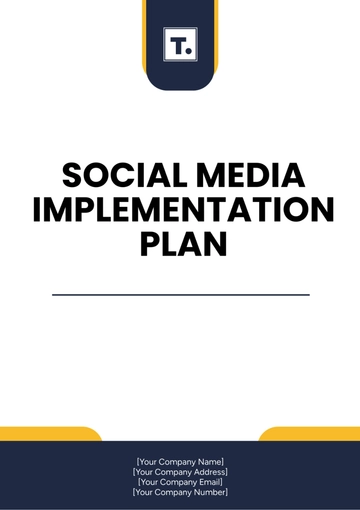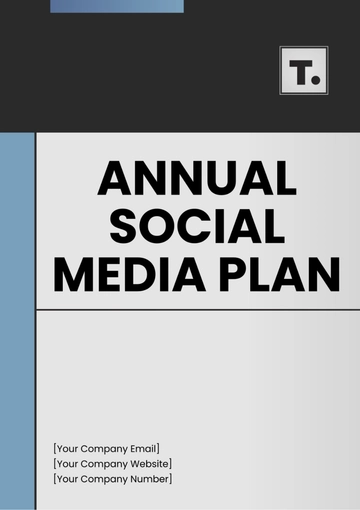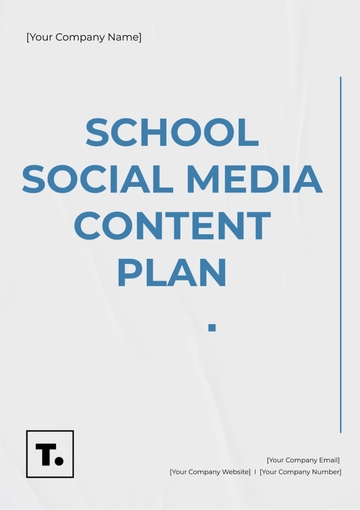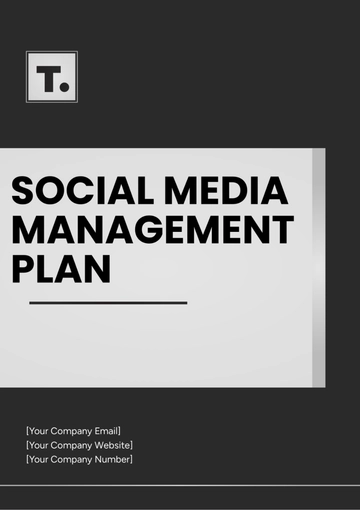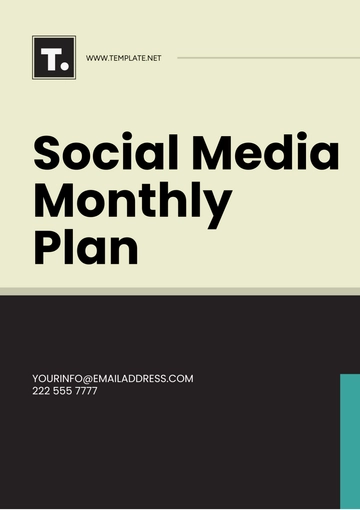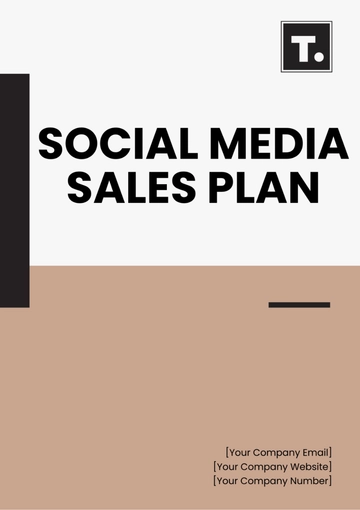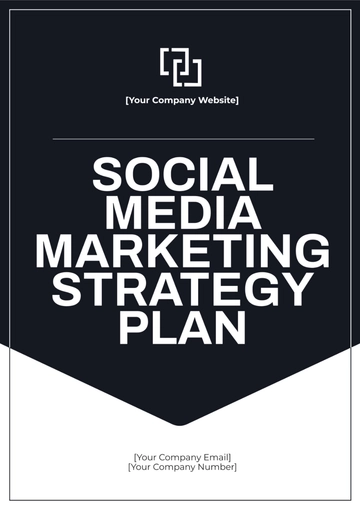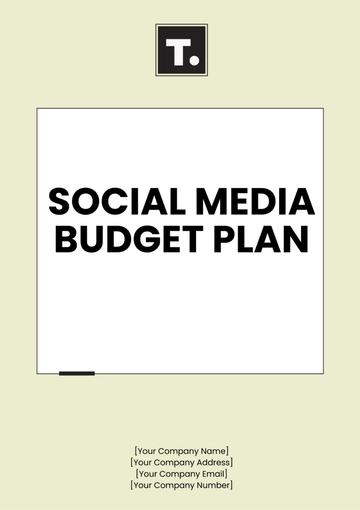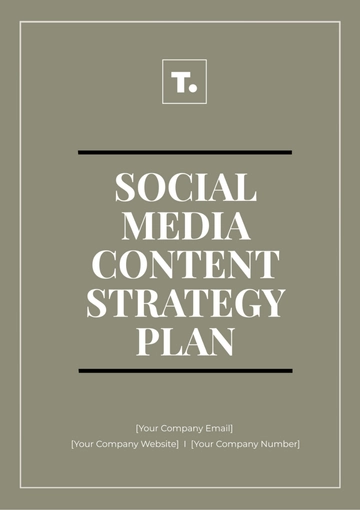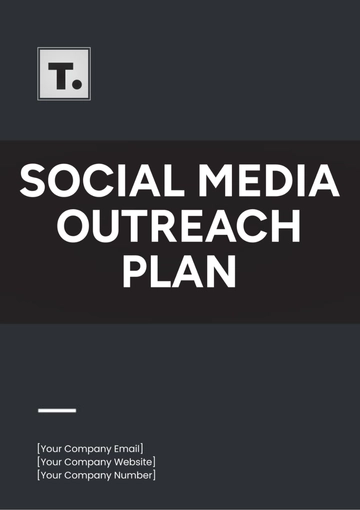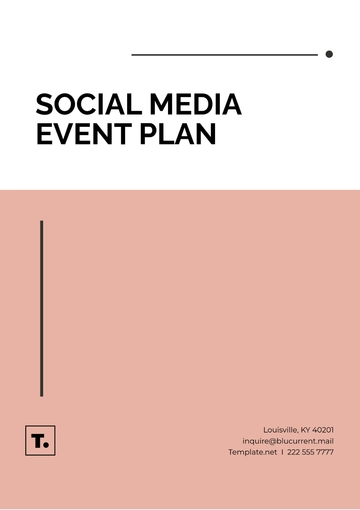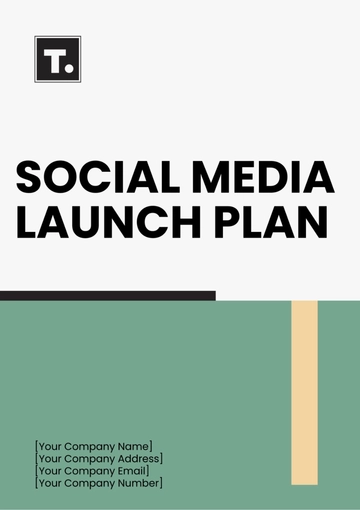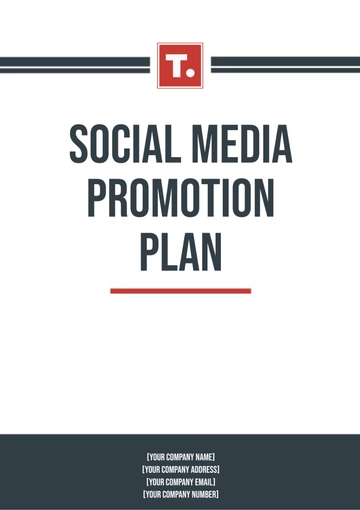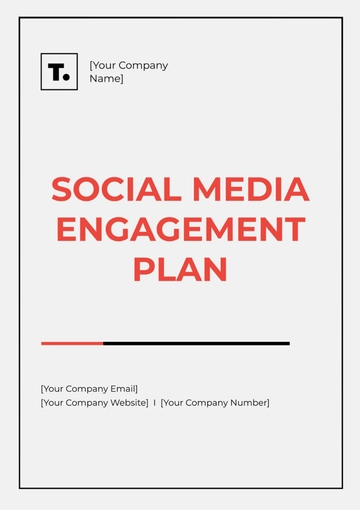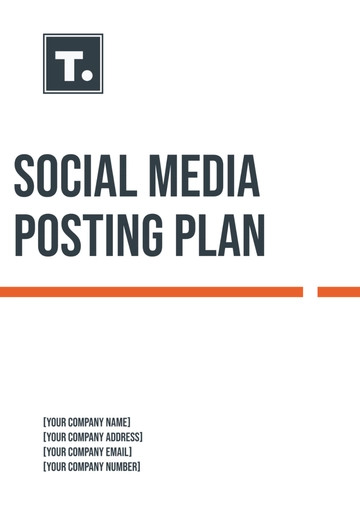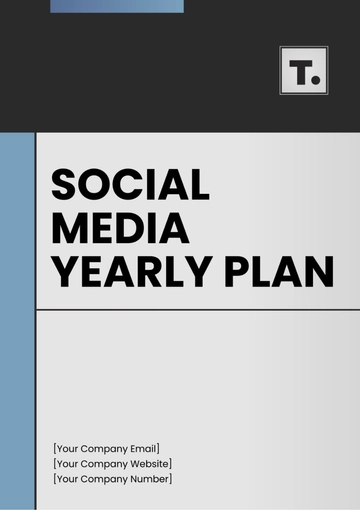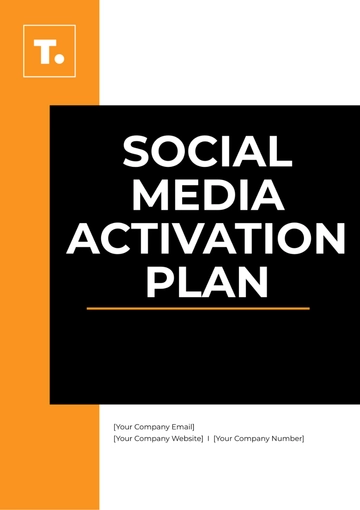Free Social Media Strategy Plan
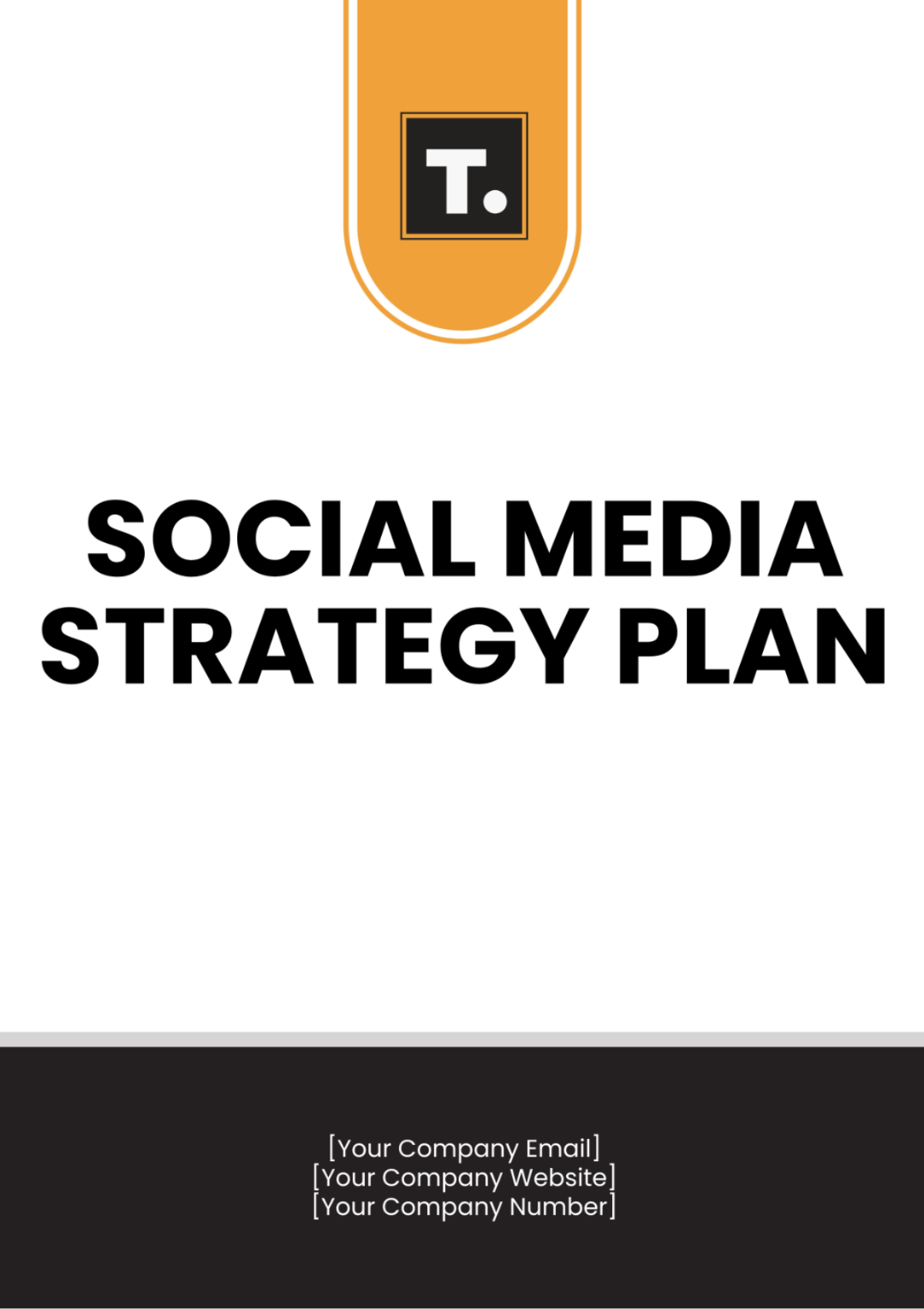
I. Executive Summary
In an era marked by increasing environmental concerns, promoting sustainable living practices through social media emerges as a crucial endeavor. This Social Media Strategy Plan aims to leverage various platforms to educate, inspire, and engage our audience in adopting sustainable lifestyles. By disseminating compelling content and fostering meaningful interactions, we aim to cultivate a community dedicated to environmental stewardship.
II. Goals and Objectives
Raise Awareness: Increase awareness about sustainable living practices among our target audience by [GOAL]% within the next [TIME FRAME].
Drive Engagement: Foster active engagement on social media platforms, aiming for a [GOAL]% increase in [METRIC].
Encourage Action: Inspire tangible actions towards sustainability, such as [ACTION], with a target of [GOAL]% increase in [METRIC].
III. Target Audience
Our target audience includes environmentally conscious individuals aged 18-45, particularly those interested in eco-friendly lifestyles, sustainable fashion, zero-waste living, and renewable energy.
IV. Platform Selection
Platform | Purpose |
|---|---|
Showcase sustainable living tips, eco-friendly products | |
Share longer-form content, event promotion, community engagement | |
Share news, trends, engage in conversations around sustainability | |
YouTube | Host educational videos, tutorials, interviews with experts |
TikTok | Create short, engaging videos to reach younger demographic |
V. Content Strategy
Educational Content: Share informative posts, infographics, and articles on sustainable living practices, climate change, and environmental conservation.
User-Generated Content: Encourage users to share their sustainable living tips, DIY projects, and success stories, fostering a sense of community.
Inspirational Stories: Highlight individuals, businesses, and initiatives making a positive impact on the environment to inspire and motivate our audience.
Interactive Challenges: Launch challenges and campaigns to encourage audience participation, such as #ZeroWasteWeek or #PlantATreeChallenge.
Behind-the-Scenes: Offer a glimpse into our company's sustainable practices, production processes, and commitment to environmental responsibility.
VI. Content Calendar
Develop a monthly content calendar with a mix of curated and original content, ensuring consistency and relevance across all platforms. Monitor trending topics and timely events related to sustainability to capitalize on engagement opportunities.
VII. Key Performance Indicators (KPIs)
Reach: Measure the total number of unique users who have seen our content.
Engagement Rate: Calculate the percentage of people who engaged with our content (likes, shares, comments) relative to the total number of impressions.
Conversion Rate: Track the percentage of users who take desired actions, such as signing petitions, attending events, or adopting sustainable practices.
Audience Growth: Monitor the growth of our social media following over time.
VIII. Budget Allocation
Allocate resources for content creation, community management, paid advertising, influencer collaborations, and analytics tools, ensuring optimal utilization of budget to achieve desired outcomes.
Budget Allocation Categories | Percentage Allocation |
|---|---|
Content Creation | [PERCENTAGE]% |
Community Management | [PERCENTAGE]% |
Paid Advertising | [PERCENTAGE]% |
Influencer Collaborations | [PERCENTAGE]% |
Analytics Tools | [PERCENTAGE]% |
IX. Risk Management
Identify potential risks such as negative feedback, misinformation, or backlash from controversial topics. Implement proactive strategies to address and mitigate these risks effectively.
X. Conclusion
By implementing this Social Media Strategy Plan, we aim to position ourselves as leaders in promoting sustainable living practices while fostering a [VIBRANT ONLINE COMMUNITY] committed to [ENVIRONMENTAL CONSERVATION]. Through engaging content, strategic partnerships, and [MEASURABLE OUTCOMES], we are confident in achieving our [OBJECTIVES] and making a [MEANINGFUL IMPACT] on the [PLANET].
- 100% Customizable, free editor
- Access 1 Million+ Templates, photo’s & graphics
- Download or share as a template
- Click and replace photos, graphics, text, backgrounds
- Resize, crop, AI write & more
- Access advanced editor
Crafting a compelling Social Media Strategy just got easier with Template.net's editable and customizable Social Media Strategy Plan Template. Tailor your approach effortlessly with our Ai Editor Tool, ensuring your brand's voice resonates across platforms. Elevate your online presence today with this indispensable resource.
You may also like
- Finance Plan
- Construction Plan
- Sales Plan
- Development Plan
- Career Plan
- Budget Plan
- HR Plan
- Education Plan
- Transition Plan
- Work Plan
- Training Plan
- Communication Plan
- Operation Plan
- Health And Safety Plan
- Strategy Plan
- Professional Development Plan
- Advertising Plan
- Risk Management Plan
- Restaurant Plan
- School Plan
- Nursing Home Patient Care Plan
- Nursing Care Plan
- Plan Event
- Startup Plan
- Social Media Plan
- Staffing Plan
- Annual Plan
- Content Plan
- Payment Plan
- Implementation Plan
- Hotel Plan
- Workout Plan
- Accounting Plan
- Campaign Plan
- Essay Plan
- 30 60 90 Day Plan
- Research Plan
- Recruitment Plan
- 90 Day Plan
- Quarterly Plan
- Emergency Plan
- 5 Year Plan
- Gym Plan
- Personal Plan
- IT and Software Plan
- Treatment Plan
- Real Estate Plan
- Law Firm Plan
- Healthcare Plan
- Improvement Plan
- Media Plan
- 5 Year Business Plan
- Learning Plan
- Marketing Campaign Plan
- Travel Agency Plan
- Cleaning Services Plan
- Interior Design Plan
- Performance Plan
- PR Plan
- Birth Plan
- Life Plan
- SEO Plan
- Disaster Recovery Plan
- Continuity Plan
- Launch Plan
- Legal Plan
- Behavior Plan
- Performance Improvement Plan
- Salon Plan
- Security Plan
- Security Management Plan
- Employee Development Plan
- Quality Plan
- Service Improvement Plan
- Growth Plan
- Incident Response Plan
- Basketball Plan
- Emergency Action Plan
- Product Launch Plan
- Spa Plan
- Employee Training Plan
- Data Analysis Plan
- Employee Action Plan
- Territory Plan
- Audit Plan
- Classroom Plan
- Activity Plan
- Parenting Plan
- Care Plan
- Project Execution Plan
- Exercise Plan
- Internship Plan
- Software Development Plan
- Continuous Improvement Plan
- Leave Plan
- 90 Day Sales Plan
- Advertising Agency Plan
- Employee Transition Plan
- Smart Action Plan
- Workplace Safety Plan
- Behavior Change Plan
- Contingency Plan
- Continuity of Operations Plan
- Health Plan
- Quality Control Plan
- Self Plan
- Sports Development Plan
- Change Management Plan
- Ecommerce Plan
- Personal Financial Plan
- Process Improvement Plan
- 30-60-90 Day Sales Plan
- Crisis Management Plan
- Engagement Plan
- Execution Plan
- Pandemic Plan
- Quality Assurance Plan
- Service Continuity Plan
- Agile Project Plan
- Fundraising Plan
- Job Transition Plan
- Asset Maintenance Plan
- Maintenance Plan
- Software Test Plan
- Staff Training and Development Plan
- 3 Year Plan
- Brand Activation Plan
- Release Plan
- Resource Plan
- Risk Mitigation Plan
- Teacher Plan
- 30 60 90 Day Plan for New Manager
- Food Safety Plan
- Food Truck Plan
- Hiring Plan
- Quality Management Plan
- Wellness Plan
- Behavior Intervention Plan
- Bonus Plan
- Investment Plan
- Maternity Leave Plan
- Pandemic Response Plan
- Succession Planning
- Coaching Plan
- Configuration Management Plan
- Remote Work Plan
- Self Care Plan
- Teaching Plan
- 100-Day Plan
- HACCP Plan
- Student Plan
- Sustainability Plan
- 30 60 90 Day Plan for Interview
- Access Plan
- Site Specific Safety Plan
